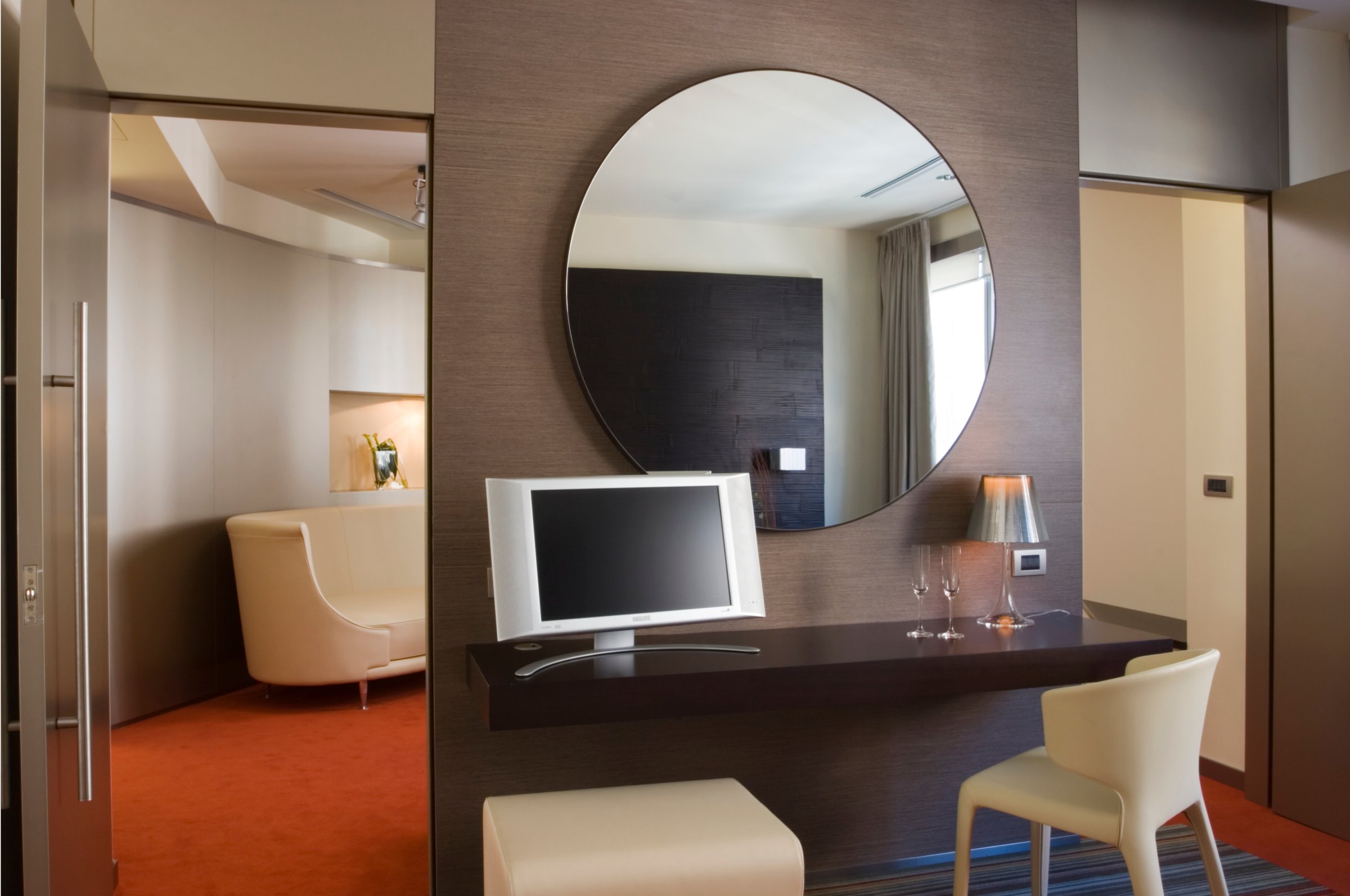
You may want to pack some disinfectant wipes the next time you travel.
When you stay in a hotel room, you usually expect that staff have cleaned it thoroughly after the last guest stayed there. But this is not always the case, and even regular cleaning can leave travelers open to other people’s germs, experts say.
In one 2012 study presented at the general meeting of the American Society of Microbiology, 81% of surfaces sampled had some fecal bacteria. Researchers found that light switches and TV remotes were among the objects most heavily contaminated with bacteria, and toilets and bathroom sinks also had high levels of microbial organisms.
This is not surprising, says Kelly Reynolds, germ expert and associate professor of environmental health at University of Arizona, because hard surfaces that are frequently touched by multiple people provide good environments for microbes to collect. Any time you touch a lightswitch or TV remote, microbes from your hands transfer to the new object. So items like the hotel phone or a keyboard also harbor lots of germs, Reynolds says.
When it comes to the bathroom, most surfaces around the toilet are likely pretty dirty. “When you flush the toilet, the viruses and the feces do get spread throughout the walls of the toilet, the flush handle, and the walls of the bathroom,” says Reynolds.
In a recent study in the American Journal of Infection Control, Reynolds and her colleagues found that flushing a toilet can send contaminants flying not only on the toilet seat, but also onto the floor and the back of the toilet (more than 80% of the time), the wall behind the toilet (nearly 40% of the time), the flush handle (22% of the time) and the toilet paper dispenser (17% of the time).
Sinks are also prime locations for germs, as the crevices around a faucet are difficult to clean and can provide a moist environment that allows microbes to grow.
Outside the bathroom, the carpeting and the bedspread are two soft surfaces to watch out for, according to Reynolds. Hotels change sheets and towels before new guests arrive, but many do not frequently wash their bedspreads. “Your best bet is to avoid contact. A lot of people will recommend just folding the bedspread back or throwing it on the chair and don’t use it while you’re there,” Reynolds says.
Much of this depends on how thoroughly a hotel cleans its rooms. When not properly sanitized, drinking glasses and in-room coffee pots can be covered in germs. “There’s also a difference between cleaning and disinfecting,” Reynolds says. “Sometimes the act of cleaning does more harm than good because you’re just spreading the germs to new areas.”
Reynolds has conducted a number of studies examining how viruses move through environments such as hotels. In one study published in the journal Food and Environmental Virology she and her colleagues planted a sample virus in a hotel room bathroom, and then watched as hotel cleaning staff spread the virus to three other rooms nearby.
Of course, not all bacteria or viruses will make people sick. We come into contact with thousands of germs every day, and only a small percentage are ever dangerous. But Reynolds says it’s still important to take precautions. “If we just remember some basic hygiene, that can help, and especially if you’re the person who’s sick, you have a responsibility to protect the people around you,” she says.
Regardless of how clean a hotel looks, Reynolds recommends people disinfect surfaces before they spend a lot of time touching them, and particularly if they’re going to eat off them. This can be as simple as using disinfectant wipes to clean off the hotel room desk or coffee pot handle. Another trick is to avoid touching your mouth and face after coming in contact with germ-heavy surfaces, as that can give those organisms a pathway into your body.
The most important advice? “Wash your hands frequently,” Reynolds says.
More Must-Reads from TIME
- Cybersecurity Experts Are Sounding the Alarm on DOGE
- Meet the 2025 Women of the Year
- The Harsh Truth About Disability Inclusion
- Why Do More Young Adults Have Cancer?
- Colman Domingo Leads With Radical Love
- How to Get Better at Doing Things Alone
- Michelle Zauner Stares Down the Darkness
Write to Abigail Abrams at abigail.abrams@time.com